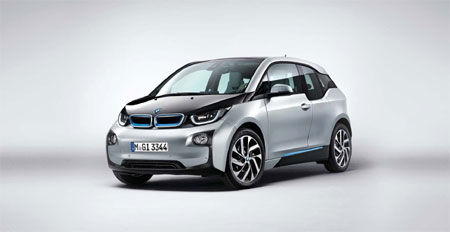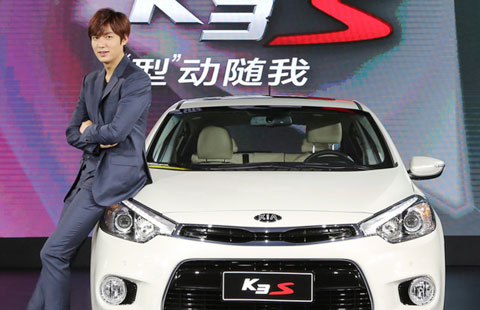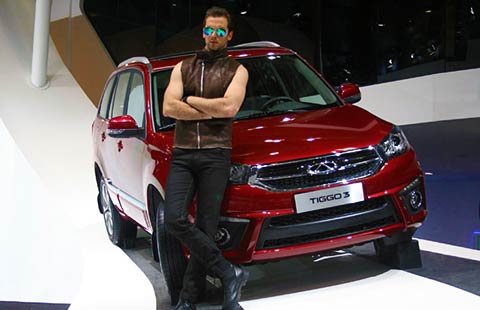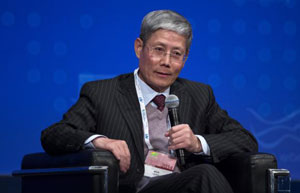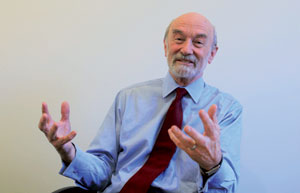Project i is the solution
(China Daily) Updated: 2014-04-20 07:57Auto giant's electric cars, marketed as the answer to the changing world, lead the green fleet into the future of sustainable motoring.
Editor's Note: During the 2014 Beijing Auto Show 10 BMW i3 electric cars are used as shuttles around the exhibition area. The i3 and i8 are the latest products of the auto giant's Project i, which started in 2007 to develop sustainable and pioneering mobility concepts.
In an interview with China Daily reporter Zhang Zhao before the Beijing Auto Show, BMW's Senior Vice-President, Ulrich Kranz, who was responsible for the project, explained the idea behind the BMW i cars.
Q: What was the reason for BMW to start Project i ? And now the i3 has been launched, what is your vision of sustainable mobility?
A: The world is changing. Meanwhile more than 50 percent of mankind live in metropolitan areas. By 2050 it will be more than 70 percent.
We need to take into consideration what that means for individual mobility, also in view of future emission regulations and limitations in oil supply. Also, we are convinced that sustainability is becoming a more and more defining aspect of premium products. BMW i is the answer to this changing world. And we are only at the beginning of an expanding portfolio of products and services under the new brand.
What contributions has Project i made to BMW's product development and production improvement?
Technologies like BMW eDrive and CarbonFibre, which have been developed to debut with the BMW i3 and BMW i8, are already serving as a precursor for other BMW model lines.
First visible results are, for example, the driveshaft of the all new BMW M3 or the Plug-In Hybrid Powertrain for the upcoming BMW X5 Plug-In Hybrid. Also services related to e-mobility, like the 360 Electric, intermodal navigation and BMW i specific features under ConnectedDrive will spread into the wider portfolio.
In the management of an innovative scheme like Project i what are the biggest challenges?
The holistic approach for BMW i, which goes far beyond the i3 and i8, certainly has been a major challenge given the complexity that came with it. Think of all the sustainability, production and legislation aspects we had to deal with. Looking back it has all come very nicely together and we can certainly say that with BMW i we are at the forefront when it comes to shaping the future of mobility. And our pockets are full of ideas to continue playing this role.
How are the sales performances of BMW i3 in Germany? BMW said that customers could order the car online, so how is the online business running?
In Germany we have 46 BMW i agents selling BMW i3 and BMW i8. Also, the online sales platform is workable already and is playing a crucial role in building up contact to BMW i3 prospective customers. Delivery time for the i3 is currently about six months and demand is clearly above the planned production capacity we had foreseen for the ramp-up period.
What is the philosophy behind the 150 km range setting for the BMW i3?
Electric mobility makes most sense in urban areas - that is why we are starting from here.
Technically we could have put more range into the BMW i3. However, the decision we made took into consideration multiple aspects, such as typical urban driving profile, weight and size of the battery, costs for the customer and BMW's typical driving behavior.
Demand for the i3 shows that we are on the right track. For long distance traveling we would still consider an efficient conventional car as the better choice - for the time being.
What are the advantages and disadvantages of the Chinese electric vehicle market in the near future in comparison with that of Japan, Europe and North America?
China to me seems like an ideal market for electric cars with all its megacities and people's desire to own a premium car. Under the legislative framework in China the BMW i3 is the smart choice for all those who are in favor of individual mobility around city centers and who do not want to sacrifice BMW typical driving pleasure when it comes to emission free motoring.
|
The BMW i3 combines pioneering mobility with sustainability. Photo Provided to China Daily |
- Monopoly break-up to shore up economy
- Chinese lawmakers worried over energy efficiency, emissions
- China's land registration to help regulate home market
- China's Yingli eyes French PV market
- Foxconn wages new kind of ‘war’
- Behind-the-scenes-look at Facebook
- PKU Resource Group looking for mascots
- China allows greater autonomy in companies' investment
